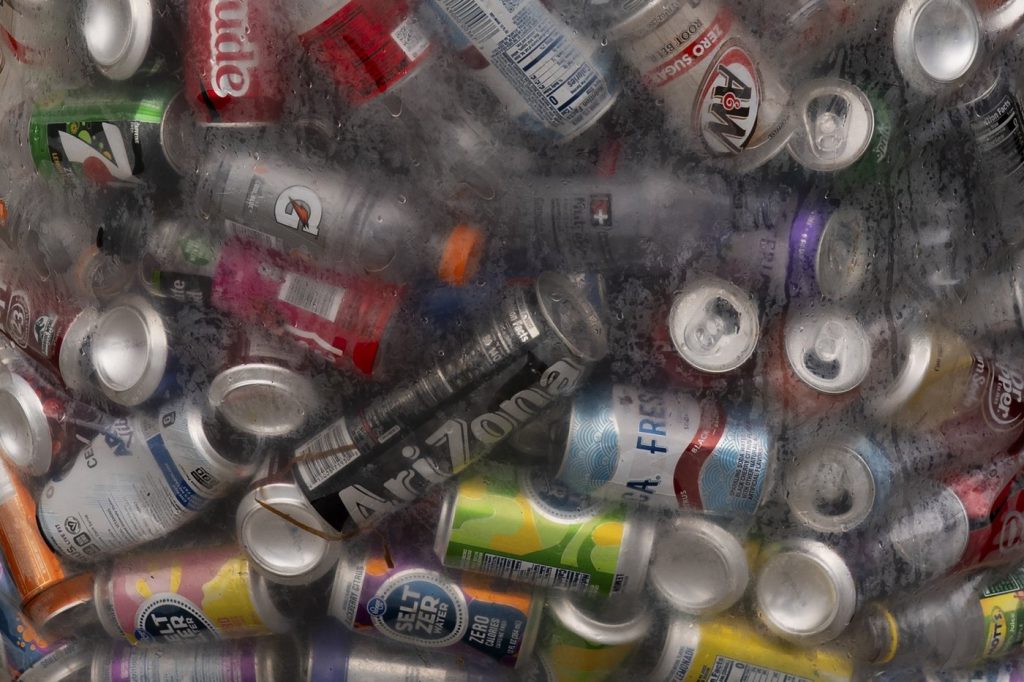PORTLAND, Ore. (AP) – Monica Truax has been a resident of her close-knit Portland cul-de-sac since 1992. However, the opening of a nearby bottle redemption center several years ago has drastically altered the neighborhood's atmosphere. Truax highlights that her block has experienced increased drug dealing, litter, and disturbances at night due to issues associated with this center. “It’s just all completely changed,” she commented, emphasizing the presence of long-time residents still raising families despite the challenges.
The original bottle bill, which was enacted in Oregon over five decades ago to incentivize recycling and reduce litter, now faces potential amendments. Lawmakers are considering measures that could impose new time restrictions on bottle redemption centers, which some believe have become hotspots for drug activity and homelessness. This pioneering legislation has not only helped establish Oregon’s reputation in the environmental movement but also serves as a crucial financial resource for many, including individuals experiencing homelessness.
Originally, consumers were required to pay a 5-cent deposit on each eligible bottle or can, which was refunded upon returning the empty containers to retailers. Over time, the law has expanded to include more types of containers and the deposit amount increased to 10 cents. Currently, there are 27 dedicated redemption centers across the state of Oregon.
States such as California, Connecticut, Hawaii, Iowa, Maine, Massachusetts, Michigan, New York, Vermont, and the U.S. territory of Guam have since adopted similar bottle redemption laws, according to the National Conference of State Legislatures. In Oregon, consumers have the option to register for accounts where refunds can be directly deposited, or they can redeem cash. Some stores process returns by hand, while others use machines or offer designated drop-off areas.
Inflation has outpaced the deposit amount, as 5 cents back in 1971 is equivalent to about 40 cents today. Nevertheless, many low-income residents depend on these funds. Critics, however, have raised concerns about the law, particularly regarding safety issues at retail stores. Some convenience store owners worry about employee safety due to the requirement to accept returns at all hours. Jonathan Polonsky, CEO of the Plaid Pantry chain, noted that small amounts of redeemed cans can add up to enough money for purchasing drugs, highlighting the safety risks for employees faced with potentially belligerent customers during the night.
Truax has experienced various issues in her neighborhood, including public urination and the presence of homeless encampments. She lamented the rise in these problems, and refers to the fentanyl crisis as “the cherry on the sundae” of her neighborhood's struggles.
A bottle redemption center near Truax's residence attracts individuals like Chris Grass, who recently redeemed 350 containers for $105, providing some financial relief during unemployment. Grass defended the activity of collecting bottles, stating, “It’s actually good for the environment.” In 2023, about 87% of eligible containers were returned for redemption, making Oregon's return rate the highest in the country.
Proposed legislation seeks to allow stores to refuse returns after 8 p.m. and introduce alternative redemption sites, including mobile units managed by nonprofits. These changes aim to alleviate pressure on retailers in downtown Portland while still providing means for individuals reliant on redemption for financial support. While many retailers support the proposed changes, groups like the Ground Score Association advocate for the existing system, emphasizing that most individuals turning in bottles are doing so to meet essential needs.
Despite the ongoing debate, there are calls for deeper reform of Oregon's bottle bill. An audit from 2020 suggested addressing surplus profits generated from unredeemed deposits, which reportedly exceeded $30 million in 2019. As the matter evolves, advocacy groups are demanding further audits and changes to ensure that the bottle bill continues to meet environmental goals while addressing the concerns of local communities.
The state legislature has until late June to finalize the proposed bill, which has already garnered significant support in the Senate and is now under consideration in the House.











